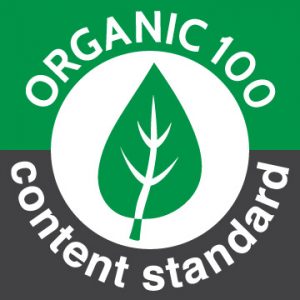Organic Content Standard (OCS). Certify textile products, manufacturing activities. Enhance textile products made with natural fibers – vegetable or animal – produced and certified in accordance with the criteria of organic agriculture.
INFORMATION

The Organic Content Standard (OCS) is promoted internationally by the Textile Exchange , provides for the release of an environmental declaration verified by a third party that :
- validates the content of natural fibers from organic agriculture in textile products (both intermediate and finished);
- guarantees traceability along the entire production chain of raw materials, intermediate products and finished products.
All textile products that are composed of at least 5% of certified organic natural fibers can be certified according to the OCS standard . The following aspects do not fall within the scope of OCS , therefore they are not subject to verification :
- Quality requirements of the material
- Safety features of the material
- Environmental performance and impacts associated with production processes
- Social criteria .
The OCS standard applies to all textile manufacturing processes starting from ginning, followed by spinning, weaving and all subsequent ennobling processes.
If you want to search for companies and products, click here:
Search for companies and products
